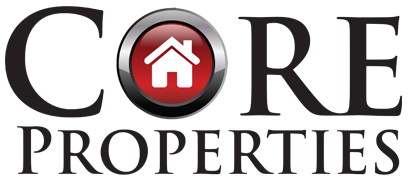An income property could be the solution you are looking for if you are near retirement and need extra funds.
Owning an income property offers a non-traditional solution for those without enough to retire. Since real estate is such an inefficient market, it is possible to find properties that will have a very high return on investment. If you manage the property yourself, this allows you to collect even more income. If a property is purchased at the right time for the right price, it can produce significantly more income than many traditional passive investments.
How Much Money Do You Need?
If you are planning to finance the property with a mortgage, you will need to take action before retirement. Lending guidelines for mortgages usually require applicants to be employed and have at least two years of steady employment in the same occupation. Lenders also require a significant down payment if the property is not going to be buyer occupied, typically around 30% or more.
“If you don’t have the cash to make such a large down payment, consider using your IRA funds. All equity growth and income from rental receipts will grow inside your IRA tax-free. Purchasing the property with funds inside a Roth IRA, on which you’ve already paid taxes, means all your earnings and equity can grow tax-free.”
Once you have decided how you are going to purchase your income property, you need to consider how you are going to pay for ongoing expenses. Just like a principal property, there are going to be maintenance costs for anything ranging from a water leak to needing a new roof. It is also important to consider other costs such as marketing and the absence of income during periods of vacancy. If you are not planning on managing the property yourself, be prepared to pay around 8% to 10% of your gross rents to a management company.
Location, Location, Location
Purchasing a cheap income property will not produce a good return on your investment if no one wants to live there. It is important to find a property in an area that will rent well. A property in a better location will have a higher price, but you will save on the marketing expenses as compared to a property in an undesirable location.
What Will You Earn?
“You want to earn at least 8% from the capital invested in the rental, net of all expenses,” said John Graves, managing principal of an independent RIA, editor of the “Retirement Journal.” Expenses include: the mortgage; taxes; insurance; maintenance; a 10% property management fee; and a 10% vacancy allowance.
If you invest $100,000 in the property, you want to earn a net income of $8,000 a year, he said. The reasoning behind the 8% is that it compensates you for the risk and lack of liquidity of your investment. If you or your spouse can work on the property by doing repairs and maintenance and/or managing the property, your costs will decline and your income will ultimately increase, he said.
Potential Problems
There are several potential problems you can run into including excessive maintenance expenses, renters who don’t pay, and difficulty finding tenants. Be sure you are aware of all laws and regulations concerning investment properties. You could be subject to drastic inspections and fees as a landlord depending where the property is located.
One of the most important tasks is selecting the right tenant. Having a set tenant screening process is key. You are trusting this person with your investment and you are also trusting that they will pay the rent. For more information on property management visit our CRP Management site.
Source: http://www.investopedia.com/articles/pf/12/income-property.asp#ixzz4UiOKhWpX

